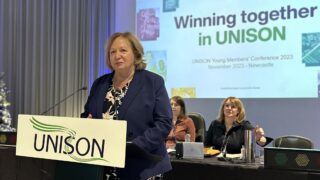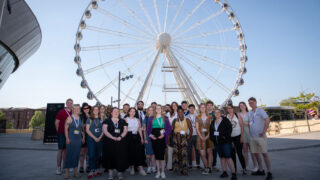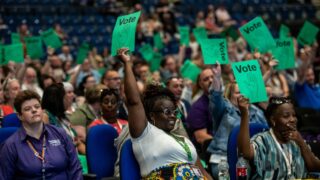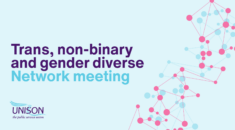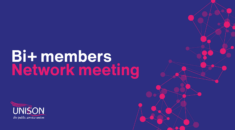“One person bullied is one too many.” That message was at the heart of an emotional first debate at this year’s UNISON national delegate conference in Brighton.
Moving a motion on stepping up the campaign against bullying and harassment on behalf of the national young members’ forum, Sinead Liddy (pictured) explained how work by young members in Scotland on the issue had won awards.
Part of their work had involved a survey – an exercise that, when repeated in Northern Ireland, had revealed that:
- a third of young members were unaware that their employer should have any policy against bullying and harassment;
- a third felt that they would be treated worse if they made a complaint;
- a third of those surveyed had experienced bullying.
“This has to change for all members – not just young members,” said Ms Lilley, noting that it showed the importance of being part of the UNISON community for support.
Trevor Hodgkins from the Eastern region asked what year it is, noting that we could be back in the 1970s: “the tank tops and the flares have disappeared, but sadly the attitudes have not.
“One person bullied is one too many,” he said.
Manjula Kumari from Walsall described bullying as “a display of negative behaviour from one person to another”.
She noted that spending one’s working life being subjected to bullying and harassment, “can leave the worker feeling isolated and alone, wondering what they’ve done to deserve this and not knowing what to do about it.”
For the NEC, Andrew Anderson described “the health of our members” as the price of the government’s austerity agenda.
“Bullying and harassment is a rising concern among health and safety reps,” he said.
“While UNISON has led the way in showing that this is an organisational and a health and safety issue … we cannot be complacent and must look for new ways to take this issue forward.”
Kim Johnson from the national Black members’ committee says that bullying is often a symptom of the “culture of the organisation”.
And she added: “Every worker deserves the right to be treated with respect and dignity at work.”
Katrina Gilman from the national LGBT committee explained that: “Back when I was first a member of UNISON, I was bullied in the workplace. I was redeployed – and it was less than welcoming.”
Being the only one not invited to a social event – being ostracised – were among the behaviours she experienced.
But then a bulletin was sent out by her UNISON branch to ask for anonymous views on how work made you feel. This started a process that eventually saw the matter resolved – and helped inspire Ms Gilman to become active in the union.
Conference called on the NEC to:
- commission further research into the scale and impact of the problem and report to conference in 2018; and
- develop a strategic response, including support, training and appropriate information.



